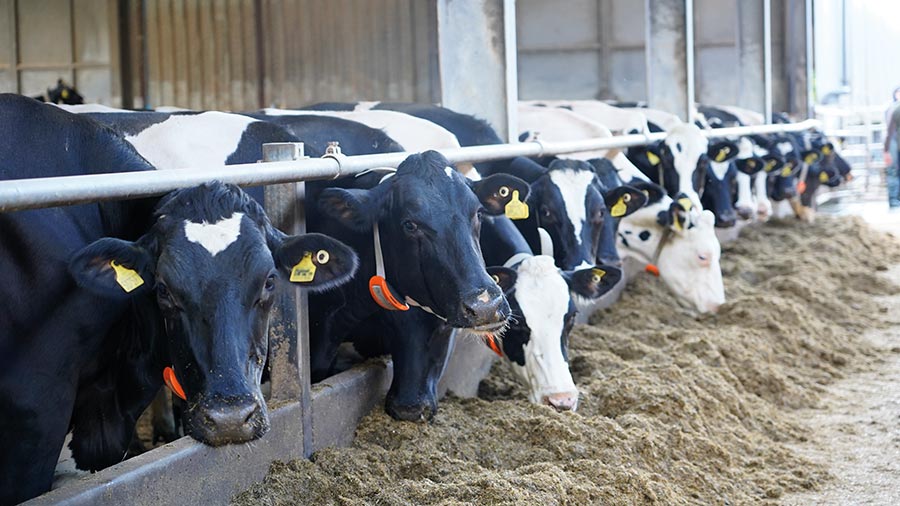New feed additive could help cut cow methane by 45%
 © Jane Craigie Marketing
© Jane Craigie Marketing A new feed additive to help farmers cut methane emissions from cows could be available as early as next year from Bovaer.
Feed additives must go through a proper authorisation process.
This means a review must be carried out of all aspects of safety for consumers, animals, and the environment.
See also: How a dairy is harvesting methane to save on diesel costs
The product manufacturers must also demonstrate efficacy.
John Newbold of Scotland’s Rural College (SRUC) explained that it is a lengthy process.
“This is a product that has a direct effect on the biochemical process that produces methane in the animal and has now gone through the process in the EU.
“Due to Brexit, the situation here is different.
“There will have to be another process for it to go through with the Food Standards Agency, but it is reasonable to think that the product will come to market sometime in 2023.”
Product efficacy
Studies have found that the feed additive enables farmers to achieve significant and immediate reductions of enteric methane emissions in dairy cattle by 30%, and 45% from beef cattle.
Prof Newbold explained that countries such as Belgium and the Netherlands are financially incentivising farmers to buy this product.
“It is interesting for us to see how this is being incentivised in other countries as there isn’t an effect on milk production or composition, so there are questions about how you are going to incentivise farmers to use,” he said.
He added that there are examples of milk processors paying a premium on milk price to suppliers who use it.
Seaweed alternatives
Seaweed has “captured the public imagination” as a potential way to reduce emissions in livestock, but Prof Newbold says species native to UK waters are not as effective.
“There is a lot of research going on around seaweed, but it is focused on a particular genus of seaweed called Asparagopsis – a tropical or warm water seaweed.
“This is being developed in places like Australia and California.
“We have had a look at seaweed native to the UK in more temperate waters and found them to be substantively less effective as methane mitigators.”
He added there is a long way to go with seaweed and Asparagopsis in particular, as there are still questions around safety and the authorisation process.
In addition, he feels there is a need to build a supply chain for it to become a credible option for UK farmers.
He concluded: “The use of feed additives will not be a magic solution or silver bullet.
“It is potentially a set of tools which will progressively fill up a toolbox that farmers can use alongside other management approaches, such as genetics and addressing livestock nutrition.”
Prof Newbold was addressing dairy farmers during an SAC Consulting event in Wigtownshire looking at ways to mitigate emissions within the sector
